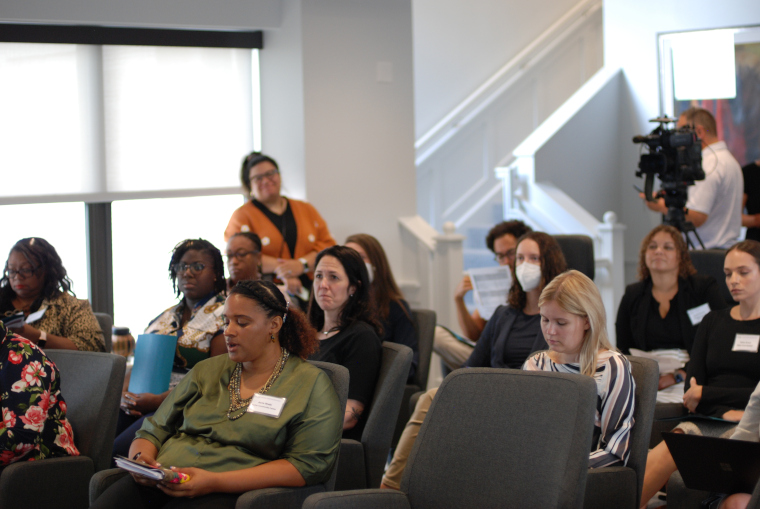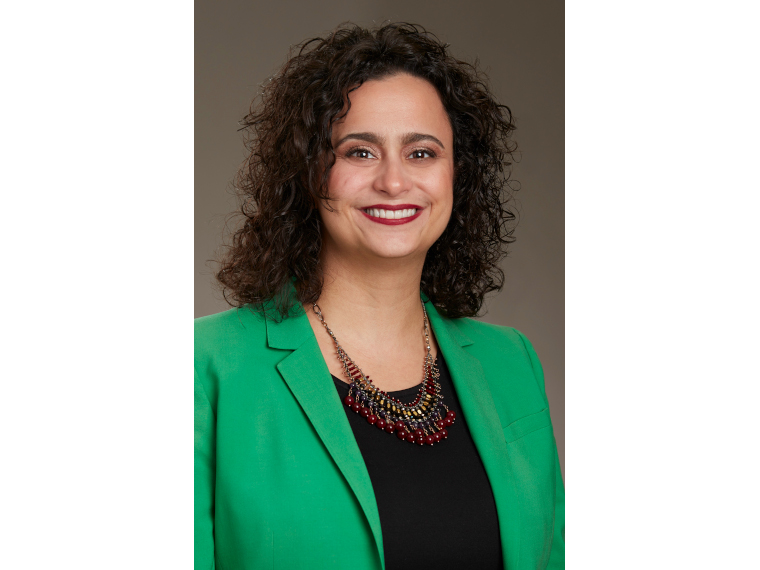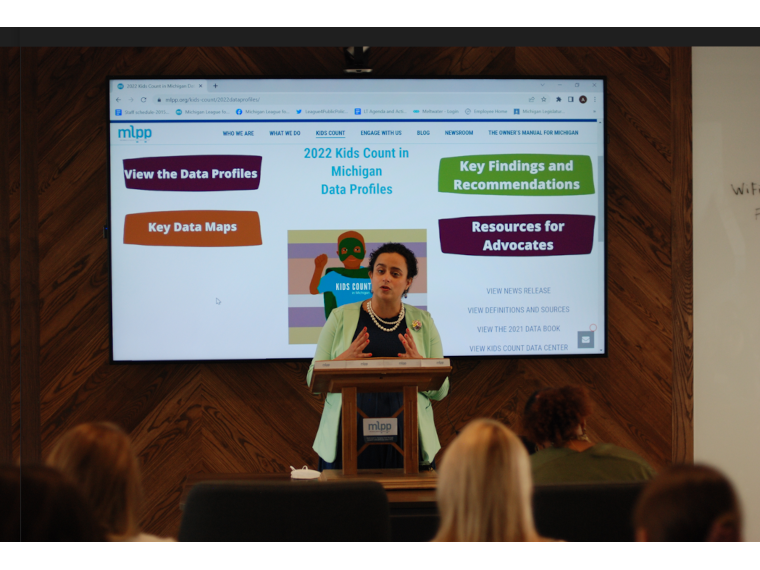Featured photo: Monique Stanton, president and CEO at the Michigan League for Public Policy, shares KIDS COUNT data.
Written by Tanya Terry
13.5% of Michigan children ages 3-17 struggled with anxiety or depression in 2020, according to the annual KIDS COUNT Data Book released by The Annie E. Casey Foundation on August 8. The rate in Michigan is higher than the national average and higher than more than 33 other states and the District of Columbia.
“Michigan, especially because we have pretty significant access to healthcare for young people, we should really be doing a better job addressing these health issues.with young people,” said Monique Stanton, president and CEO at the Michigan League for Public Policy.
“What we also know is that individuals who are people of color have a higher rates of suicide and depression,” Stanton added.
Stanton pointed out the rate of young people struggling with anxiety and depression in 2020 was 13.4% higher than it was in 2016.
“That represents an increase of about 22,000 more Michigan children who are struggling,” she added. “When we talk about students of color we are talking about around 9% of high schoolers that were struggling-but we’re looking at about 12% of Black students, 13% of students who have two or more races; 26% of American Indian or Native Alaskan high schoolers attempted suicide in the year previous to the pandemic hitting; we also know that LGBTQ students are encountering significant challenges as they seek mental health services depending on the community they live in.”
Stanton stated among heterosexual high school students of all races and ethnicities, about 6% attempted suicide. However, that number goes up substantially for youth who are part of the LGBTQ community to about 23%.

The Annie E. Casey Foundation and The Michigan League for Public Policy calls for lawmakers to respond to the surgeon general’s warning by developing programs and policies to ease mental health burdens on children and their families.
“We need to do more to make sure young people have access to behavioral health care-access in places that are easily accessible and reachable for them.”
Stanton said this includes school-based health clinics, behavioral health providers, as well as people from different racial and ethnic backgrounds. She pointed out incidents of school violence, as well as the pandemic, have likely been putting additional stress on young people.
According to Stanton, whether children have been diagnosed with a mental health condition of not, ensuring that people have access to primary prevention services; health and wellness promotions services and prevention programming; as well as understanding the signs of depression, anxiety and other disorders go a long way in helping developing resiliency skills.
Stanton also advocates early intervention. This is possible through access to high quality childcare, access to high school programs and/or a possible home visiting program.
The number of children without health insurance is 3%, slightly lower than the national average of 5%, This was one of the benchmarks in which Michigan did best in when looking at the state rankings for KIDS COUNT data.
“We actually have a really low rate of uninsured children in the state of Michigan. So, kids should have access to quality healthcare, including behavioral health.”
According to Stanton, one of the challenges in accessing behavioral health care, especially through Medicaid or the CHIP program, is reimbursement rates are low for those types of services. In addition, sometimes there aren’t enough providers in a particular area to meet the demand.
Some of the positive aspects of the report are it shows fewer kids are growing up in poverty across America and the number of high school students not graduating on time is at an all-time low. Still, Michigan is ranking 32 out of 50 states. Stanton believes the positive aspects of the report, availability of services and new programs and money allocated towards mental health, special education and an increase in the per pupil funding formula through the state budget, will give hope for increased improvement for children in Michigan, Flint and Genesee County. She is hopeful that in the future school systems will be able to provide the types of services and educational opportunities needed for children of all ages.



